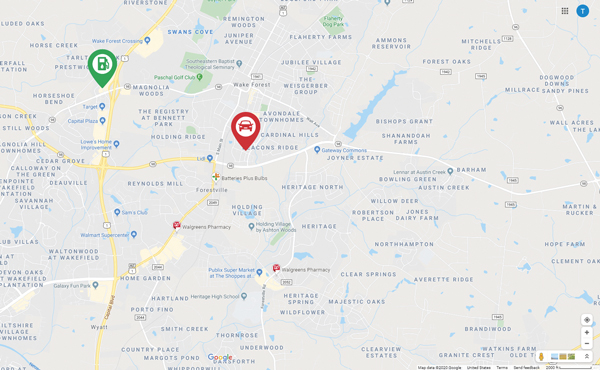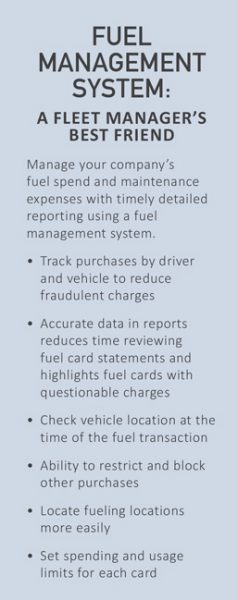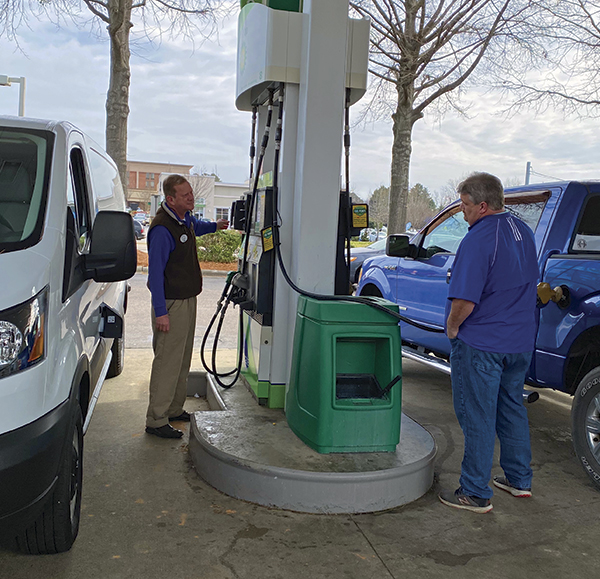Aside from the cost of buying your fleet vehicles, fuel and maintenance are the highest expenses of any fleet program.
Ever-fluctuating gas prices make it hard to predict what you’ll pay at the pump each week. While it’s impossible to control the cost of fuel, managing the expenses of vehicles, including gas consumption, is possible. Implementing a fuel management system that’s integrated with the right fuel cards can optimize fuel use, mitigate fraud, and ultimately save your company a lot of money.
No matter the size of your fleet, there are many ways to manage productive usage of your vehicles and gas consumption, as well as keep your drivers on the right course. Implementing a fuel program gives you insights into your company’s fuel purchasing practices and shows where you can cut costs and prevent fraud or theft.
MANAGEMENT & REPORTS
Good fuel management systems have custom reporting tools that enable managers to spot fuel card discrepancies—which affect your bottom line. The key to a good fuel management system is the accuracy of the data. There is so much data that these programs are able to collect. At first, it can be awesome to have so much information at your fingertips. But on second look much of the data, albeit interesting, doesn’t help manage the fleet. When selecting a system, focus on information related to fueling at the pump.
The accuracy of this data is crucial for two reasons: 1) you’ll plan your budgets and schedules around this data; and 2) when data is inaccurately reported, it can affect how you handle a potential fraudulent situation. Wrongly accusing a driver of stealing gas using a company fuel card would be awkward at best.

Example of a bad transaction alert because a fleet vehicle was more than 4 miles from the gas station when the fleet card was used.
TAKE CONTROL
A company fuel card or business gas card allows drivers to purchase fuel for company vehicles without the hassle of reimbursements or worrying about cash transactions. A fleet card works like any other credit card but also collects additional fuel transaction information that helps fleet managers gain control over fuel purchases and prevent theft.
Some fuel cards can be locked to approve certain purchases and even authorized for fuel only to protect against unauthorized spending. Save your driver from going into the store by approving to pay only at the pump.
FOR YOUR FLEET
There are many options when deciding on which fuel cards will best meet your needs. Some can only be used for specific fuel brands so you can choose your fueling network, or you can pick a card with universal acceptance and give your drivers more options. Consider setting purchase controls such as fuel grade, diesel only, transactions per day, and gallons per transaction. Each card will offer varying payment options and terms.
Additionally, you can negotiate a better rate for gas if you commit to one fuel company. Reach out to a company and talk about your needs and where the fleet travels the most to negotiate better rates. Your company can be assured the best rates by using only that fuel company’s stations to gas up. Once the deal is in place, notify your fuel card company and they will ensure that you’re billed at the correct rate.

TRACK FUEL METRICS
A good fuel management system will send fleet managers real-time reporting, updates, and alerts to stay informed of driver purchases and possible fraud. You can set custom alerts to monitor after-hours and unauthorized purchases.
The best fuel management systems process fuel card purchases nightly and compare them to GPS data. This step cross-checks the location of the purchase with the location of the fleet vehicle at the time. It should also verify the amount of fuel purchased matches the amount of fuel that was put into the vehicle. If an individual driver buys a certain amount of gasoline, but only a portion of it is showing up in the gas tank of the vehicle, verify what could account for the extra fuel: filling up a gas can or generator to be used at a jobsite, for example. If the excess fuel cannot be explained, the transaction should be flagged as a bad transaction.
A fuel management system will greatly minimize the time you spend on administrative tasks and micro-managing drivers’ purchases by giving you access to monthly summary reports, weekly or bi-weekly vehicle management reporting, and immediate email alerts to report unauthorized spending activity.
Manage your fleet and fuel use by using these new technologies that can maximize savings, increase productivity, and pinpoint areas of improvement across your entire fleet. With an array of restrictions, varying controls, and reporting capabilities, you could save your company thousands of dollars a year.

ABOUT THE AUTHOR
Stuart Lamm is the founder and president of BlueArrow Telematics. He began his company in the early 1990s as an entrepreneur in wireless technologies for the mobile workforce. His vision and understanding of technology led him to focus his company on telematics where his deep knowledge of the industry helps integrate technology for fleets all over the country. Email him at SBL@bluearrowmail.com.
BlueArrow Telematics is a hub of integrative technology products and services that are specialized for fleet vehicles, work trucks, long-haul vehicles, and the needs of the companies using them. The BlueArrow team supports integration of telematics for industries like: construction, field services, transportation, education, emergency management services, municipal, and state governments.




